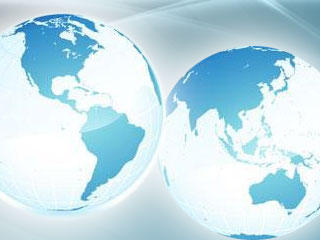UNDRIP receives US support
Obama makes announcement at second annual summit
By Rob Capriccioso, Today staff

WASHINGTON – President Barack Obama made major
news during the second annual White House Tribal Nations Conference,
announcing United States’ support for the U.N. Declaration on the
Rights of Indigenous Peoples.
“[A]s you know, in April, we announced that we were reviewing our
position on the U.N. Declaration on the Rights of Indigenous
Peoples,” the president said in a speech before tribal leaders Dec.
16 at the Department of the Interior. “And today I can announce that
the United States is lending its support to this declaration.
“The aspirations it affirms – including the respect for the
institutions and rich cultures of Native peoples – are one we must
always seek to fulfill.”
Obama said the administration will release a more detailed statement
about U.S. support for the Declaration.
While not legally binding under international law, the U.N.
describes the declaration as setting “an important standard for the
treatment of indigenous peoples that will undoubtedly be a
significant tool towards eliminating human rights violations against
the planet’s 370 million indigenous people and assisting them in
combating discrimination and marginalization.”
Robert Coulter, director of the
Indian Law
Resource Center, wrote in a column after the president’s
announcement that the endorsement marks the culmination of more than
three decades of hard work by indigenous peoples and other members
of the international human rights community.
“Our work to ensure justice for Indian nations in this country
begins in earnest with the United States’ endorsement of the U.N.
Declaration,” Coulter said. “To see the promise of the declaration
become a reality, we must continue to fight for laws, policies and
relationships that take into account the permanent presence of
Indian nations in this country, and throughout the world.”
He said the Declaration not only sets an agenda, it also serves as a
“powerful affirmation” of Indian rights. He said it can be used as a
guide for procedures and processes in dealing with indigenous
peoples, as well as to support and advocate for positive legislation
and government action relating to Indian peoples.
The U.N. General Assembly first ratified the Declaration in
September 2007. The document received 143 votes in favor, with four
negative votes cast – from Canada, Australia, New Zealand and the
United States. Since that time, Australia and New Zealand changed
their votes to support.
Many Native Americans believe that adoption of the Declaration will
result in significant improvements in the global situation of
indigenous peoples.
According to the U.N., there are more than 370 million indigenous
people in Africa, the Americas, Asia, Europe and the Pacific. Even
in wealthy countries, such as the U.S., they tend to be among “the
most impoverished, marginalized and frequently victimized people in
the world,” according to the International Work Group for Indigenous
Affairs.
The president also used his summit speech to clarify his support for
the Native American Apology Resolution, which he signed last year,
after which he did not make an out-loud apology to Native Americans
for the historic federal injustices noted in the legislation. Some
Natives said at the time that for the apology to hold weight, he
should say it out loud.
“It’s a resolution I fully supported – recognizing that no statement
can undo the damage that was done; what it can do is help reaffirm
the principles that should guide our future. It’s only by heeding
the lessons of our history that we can move forward.”
Obama’s words came as hundreds of tribal leaders were gathered at
Interior, invited to interact with high-ranking administration
officials in a day-long summit.
It was the second such conference Obama has held since being elected
president.
Indian leaders promised to bring a variety of policy matters to the
table in an overall effort to forge stronger tribal-federal
relations. Many were overjoyed to learn of the president’s support
for UNDRIP, with a thunderous applause arising from Interior’s
Sydney Yates Auditorium.
On hand were countless major players on the Indian scene, including
Navajo Nation President Joe Shirley, National Congress of American
Indians President Jefferson Keel, IHS Director Yvette Roubideaux,
and numerous tribal leaders.
One representative from each federally recognized tribe was invited
to attend. Alaska and California tribes presented the vast majority
of attendees, according to the White House confirmation list.
Interior Secretary Ken Salazar, in his opening remarks, called the
gathering “a very special occasion” that represented a rarity
because so many of Obama’s Cabinet staffers – seven – were in
attendance.
“They are here because they believe in all of you and the
nation-to-nation relationship,” Salazar said.
© 1998 - 2010 Indian Country Today. All Rights Reserved To subscribe or visit go to: http://www.indiancountry.com